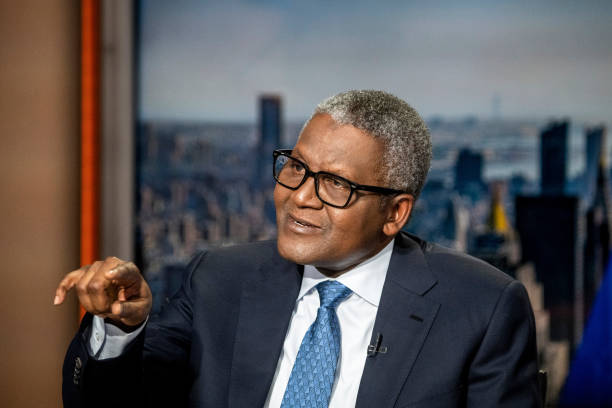Africa’s continued reliance on imported refined petroleum products is costing the continent over $90 billion annually, Africa’s foremost industrialist, Aliko Dangote, warned on Tuesday. Speaking at the West Africa Refined Fuel Conference in Abuja, Dangote decried the continent’s failure to process its own crude oil, describing it as a major factor driving job losses, economic dependency, and deepening poverty.
The billionaire businessman, whose Lagos-based refinery is the largest in Africa, criticized the region’s export-driven crude oil model, noting that African nations are essentially outsourcing their economic future to foreign refiners.
“Every year, we hand over $90 billion to economies better positioned to refine our resources,” Dangote said. “This approach is stalling our industrial growth and exporting jobs we desperately need.”
Despite Africa’s rich hydrocarbon reserves, the continent refines only about 31% of its fuel needs, while 69% is imported, according to data from the Nigeria Midstream and Downstream Petroleum Regulatory Authority (NMDPRA). Five leading West African economies—Nigeria, Ghana, Niger, Senegal, and Côte d’Ivoire—continue to import the bulk of their gasoline, despite having a combined refining capacity exceeding one million barrels per day.
Dangote highlighted the technical and regulatory challenges he faced in establishing the $19 billion refinery in Lagos, pointing out that procuring local crude remained a major hurdle. “Rather than selling directly to us, Nigerian producers preferred to deal with international traders, who in turn resold the crude to us at inflated prices,” he said. This situation, he added, forces the refinery to import crude from as far as the United States.

He also drew attention to logistical inefficiencies across Africa, revealing that transporting crude from one African country to another is more expensive than importing it from Asia. Compounding the problem, he said, are inconsistent fuel specifications across African nations, which complicate regional trade.
“The diesel refined for Nigeria cannot be sold in neighbouring countries like Ghana or Cameroon due to different quality standards. This lack of harmonisation only strengthens the grip of foreign fuel traders,” he noted.
In addition to the economic concerns, Dangote warned that Africa’s refining ambitions are under threat from the influx of low-cost, substandard fuel products, especially from Russia. “We must guard against the same fate that befell our textile industry—where dumping killed domestic production,” he said.
Despite the headwinds, Dangote said the Lagos refinery has already exported over one million tonnes of petrol since June and is preparing for a public listing. He called for unified political action across the continent to harmonise fuel standards, support local refining, and curb the influence of rent-seeking middlemen.
Also speaking at the conference, Farouk Ahmed, Chief Executive of NMDPRA, acknowledged the urgent need for reform, noting that the continent trades about 2.14 million metric tonnes of gasoline monthly, but produces only 610,000 metric tonnes locally.
Ahmed expressed optimism that upcoming refining projects—particularly in Nigeria—will shift the tide. The 2025 OPEC World Oil Outlook projects that Africa will add 1.2 million barrels per day in refining capacity by 2030, much of it from West Africa.
To boost market efficiency, Ahmed disclosed that the agency is working with S&P Global Commodity Insights to launch regional pricing indices tailored to West Africa, aiming to enhance pricing transparency and foster regional trade.
NNPCL’s Group Chief Executive Officer, Bayo Ojulari, echoed the concerns, describing the region’s dependence on fuel imports as “an existential threat” to both energy security and economic progress. He said Nigeria, with its strategic ports and growing regulatory capacity, is well positioned to emerge as a regional refining hub.
Meanwhile, the African Refiners and Distributors Association (ARDA) warned that more than 80% of refined fuels consumed in West Africa are still imported. ARDA’s Executive Secretary, Anibor Kragha, said the situation poses a threat to sovereignty and called for over $15 billion in downstream investments across the continent over the next decade.
“Let us not wait for outsiders to define Africa’s energy destiny,” Kragha said. “We must shape it ourselves—by Africans, for Africans.”
The conference closed with calls for accelerated reform, regional collaboration, and greater political will to secure Africa’s energy independence and reduce its reliance on imported petroleum products.



